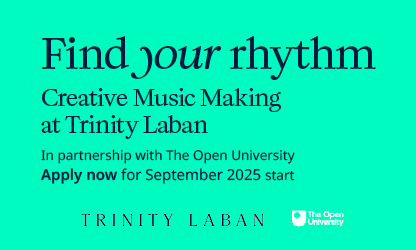Blog: Orchestra is not a genre
What are professional orchestras up to these days – what do they see as their future and mission, how do they relate to the places they find themselves in, including their communities’ leisure-time groups? Could we – Making Music and its member groups – be working more closely with them?
These are some of the questions which prompted me to attend the ABO conference on members’ behalf this year, and I emerge the other side of it with mixed feelings.
There are still a lot of professional ensembles which see their work as cascading classical music (old and new) to as many people as possible. They may do ‘outreach’ or ‘education’ with their communities – cementing a ‘them’ and ‘us’ perception, and perhaps patronisingly implying that we, the general public, need educating.
And then they puzzle why they are often not successful. These will be the managers insisting that the fault for not everybody loving Brahms and Mahler lies with the education system which fails to bring young people to appreciate ‘proper’ music.
No thought seems to be given to the fact that maybe ‘the people’ just want to experience their music differently, or in different spaces, or actually that there are other musicks of equivalent complexity and interest in the world which some people may just prefer to the Western classical repertoire – and quite a narrow proportion of that - still predominantly performed by the world’s leading orchestras.
I am happy to report that those kinds of orchestras and managers seem to be (albeit slowly) becoming fewer. My favourite session of the conference - ‘Design Your Own Orchestra’ - saw participants divided into six groups to create a new orchestra from scratch, in a location with no existing professional music ensemble.
Of the six groups, only two decided to have the word ‘orchestra’ in their name, only one had a concert hall as their base (the rest were either moveable feasts or embedded in a school or other community hub), all of them saw no difference or choice to make between artistic excellence and social relevance, and most of them saw their mission as working with their communities to understand their needs and interests, and then facilitating those musically in many different ways, of which performances was only one.
The musicians they would engage would not only be outstanding performers but also outstanding facilitators. It reminded me that we have got into the habit of thinking the word ‘orchestra’ refers to the genre of music it has in the past been associated with.
But actually an orchestra is a large ensemble of excellent instrumentalists, able to broker life-changing opportunities for their communities, participants and audiences, with all sorts of music. Truly ‘Crossing borders’ by breaking to through the fourth wall dividing ‘them’, the performers, and ‘us’ their communities.



